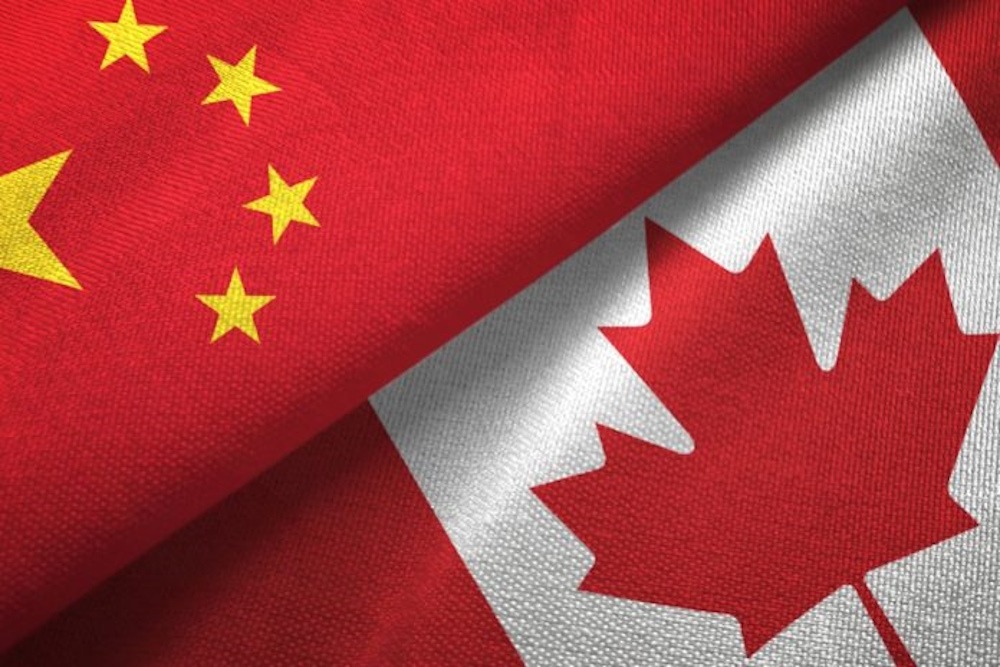Canada increases duty on Chinese EV, Steel, and Aluminum

The Canadian government will impose substantial duties on imports of Chinese electric vehicles, steel, and aluminum, aligning itself with friends such as the United States in order to safeguard its own domestic industry.
On Monday, Finance Minister Chrystia Freeland announced a series of steps designed to reduce unfair competition from Chinese firms in Canada’s electric vehicle (EV) industry and steel and aluminum sectors.
Effective in October, Canada would impose a 100% surcharge on all Chinese-manufactured electric vehicles (EVs), encompassing electric and certain hybrid passenger cars, trucks, buses, and delivery vans. The additional impost will be imposed alongside the existing 6.1% “most-favored nation” tariff on Chinese-manufactured electric vehicles (EVs) imported into Canada.
Commencing on October 15, the government plans to impose a 25% surtax on steel and aluminum imports from China. Freeland argues that this measure aims to safeguard Canadian workers and deter the diversion of Chinese exports through Canada to other trade partners.
The two levies align with the policies implemented by the Biden administration in May, which increased the tax on specific Chinese steel and aluminum items from 7.5% to 25% and raised the charge on electric vehicles from 25% to 100%. Although not to the same extent as the United States, other jurisdictions have also adopted similar measures. In July, the European Commission imposed temporary tariffs on Chinese-made electric vehicles (EVs) after concluding that the Chinese government provides unjust subsidies to the electric car industry.
According to Freeland, Canadian workers and key industries are subjected to a deliberate and government-driven policy of maintaining excessive production capacity, which weakens the country’s potential to compete in both local and international markets. “Hence, our government is proceeding with resolute measures to equalize the opportunities, safeguard Canadian workers, and align with the actions implemented by important trading partners,” she stated.
According to Chinese customs data analyzed by the Atlantic Council, a Washington-based foreign-policy think organization, Canada imported approximately $1.6 billion worth of Chinese electric vehicles in 2023. Ottawa approximates that the automobile industry in the country directly sustains over 125,000 labour positions, while the steel and aluminium sectors provide employment for more than 130,000 people throughout Canada.
In addition to the tariffs, the government intends to modify the eligibility criteria for rebate programs that target electrified cars (EVs) with the goal of increasing sales of environmentally friendly vehicles.
In contrast to previous U.S. actions aimed at China, such as higher tariff rates on semiconductors imported from China, solar cells, batteries, and battery components, the Liberal government refrained from matching these steps. Freeland stated that the government will initiate a 30-day consultation program for these crucial businesses.
Ottawa intends to evaluate the new measures within one year after their implementation, and have indicated that the steps may be prolonged or augmented by further measures if necessary.
In recent years, China has become the leading producer and exporter of electric vehicles (EVs) worldwide. Amidst a decline in demand, its steel and aluminum manufacturing capacity has consistently expanded. Efforts by the Canadian government and trade partners to hold China accountable for inadequate standards in its electric vehicle (EV) supply chain include substandard labor practices, insufficient environmental safeguards, and trade rules that encourage excessive supply.









